

Exploring the Psychological Burdens of Young Professionals Considering Resignation
Exploring the Psychological Burdens of Young Professionals Considering Resignation
Recent research conducted by Wandering Seagull Co., Ltd., has shed light on a concerning trend among young professionals aged 20 to 35 in Japan. In a survey focusing on their experiences of expressing the desire to resign, a staggering 60% reported feeling the urge to quit their jobs after returning from extended holidays. This phenomenon, commonly known as the post-holiday blues, has been linked to various psychological barriers rooted in past experiences.
Background of the Study
The survey, carried out from May 9 to 12 in 2025, utilized online research methods, collecting responses from 1,010 participants who identified as employed in the specified age group. The results, released through their official channels, indicate a significant emotional response to returning to work after a break.
More than half of the respondents admitted feeling that speaking up about their feelings of wanting to resign was incredibly challenging due to fears of being discouraged, judged, or simply not taken seriously. This notion that quitting a job might bring on negative repercussions is prevalent among many young workers.
The Psychological Toll of Work
The findings reveal that a substantial number of respondents experience overwhelming stress when contemplating work-related issues. Specifically, 55.9% indicated that thinking about their jobs during their holidays induced significant stress. An additional 52.7% reported enjoying their time away from work so much that the thought of returning felt unwelcome.
The gap between leisure and work is particularly pronounced for young professionals, who often find themselves in precarious job situations, such as being new hires or transitioning to different roles. The struggle to navigate this divide can manifest in feelings of anxiety and inadequacy, causing a cyclical effect on their mental well-being. When questioned about their motivation to work after the holidays, approximately 40% of respondents admitted experiencing a decline in their motivation, which underscores the issue at hand.
Changing Perceptions of Resignation
In an intriguing twist, the study also highlighted a shift in how young professionals perceive the act of resigning. When asked about their views on leaving their jobs, many now see it as a necessary step for their mental health and personal growth. About 32% believe that quitting is essential for protecting their well-being, and 30.2% view it as a pathway to living authentically.
The criteria influencing their perceptions include the support they receive from family and personal experiences. In fact, around 27% of responders credit discussions with family members as pivotal in shaping their viewpoints. This indicates that interpersonal relationships play a more significant role than social media or generalized advice in informing their decisions regarding resignations.
The Role of Resignation Assistance Services
In light of the growing recognition of resignation as a legitimate choice, the introduction and rise of resignation support services, like 'Daijoubu', has become increasingly relevant. Despite around 37.3% of survey respondents stating they do not envision using such services for themselves, others acknowledged the potential benefits, with 35.6% considering it a logical option and 33.9% seeing it as helpful for emotional support.
These services aim to alleviate the psychological burdens associated with quitting a job. The top advantages provided by such services include significant reductions in emotional stress, avoidance of challenging conversations with superiors, and facilitating smoother processes in resigning. The growing acceptance of these services reflects a cultural shift toward valuing mental health and well-being over traditional notions of work loyalty.
Conclusion
The survey highlights the ongoing struggles young professionals face when considering resignation. Despite cultural stigmas surrounding quitting, there is a notable trend toward embracing resignation as a positive, self-protective measure in their careers. The introduction of resignation services provides a necessary avenue for those who find expressing their feelings daunting, reinforcing that seeking help is a sign of strength, not weakness. As this conversation evolves, it reflects a broader understanding that prioritizing one's mental health is crucial in today's rapidly changing work environment.
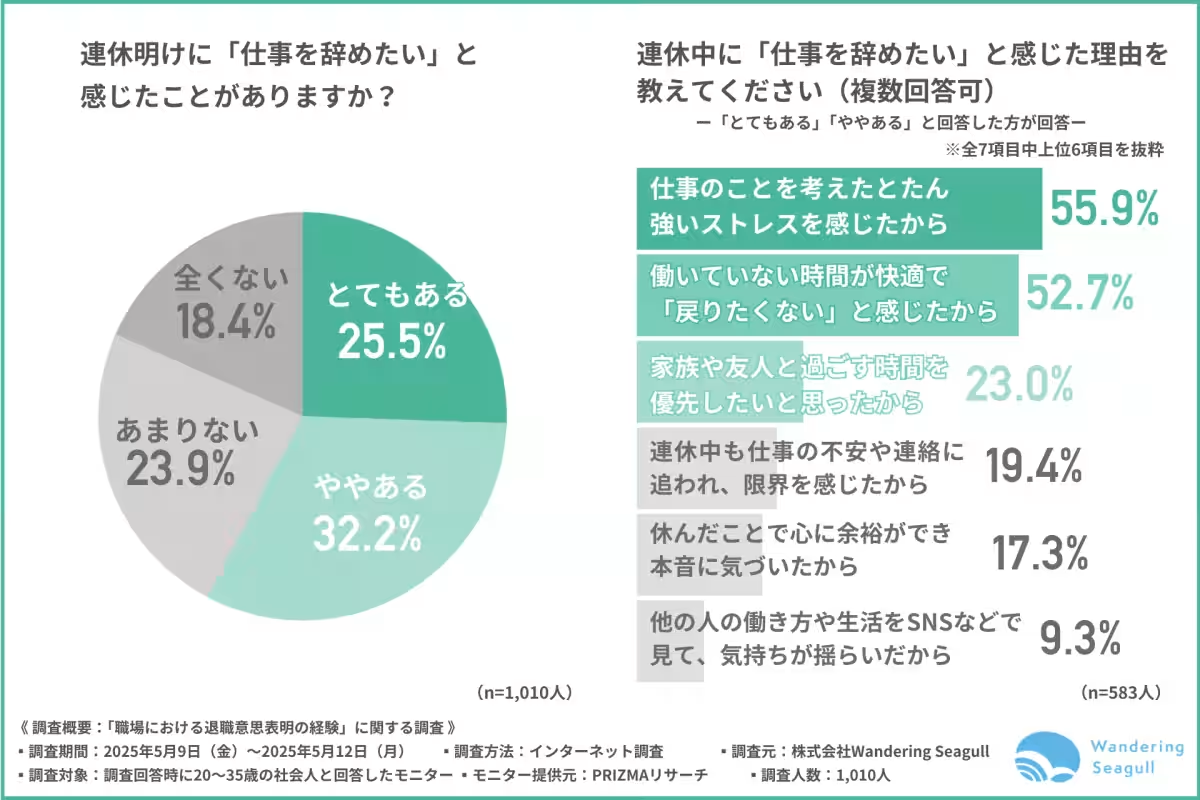
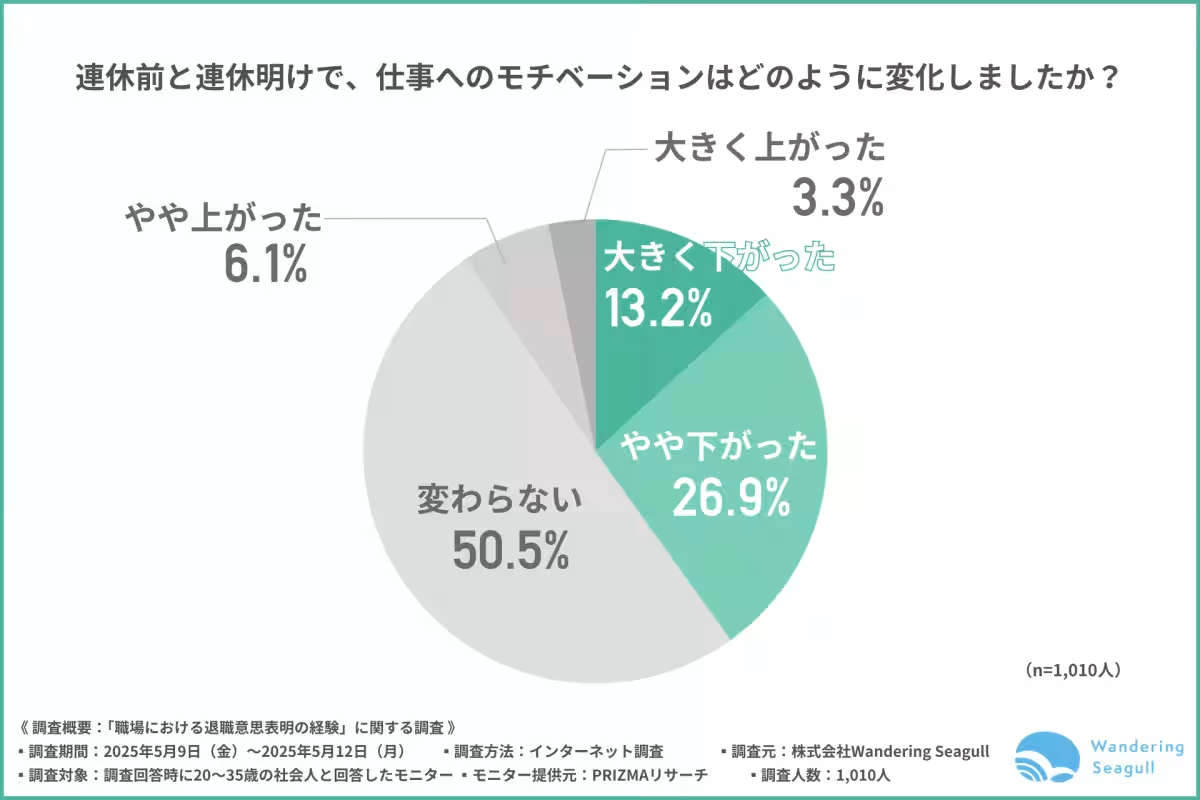
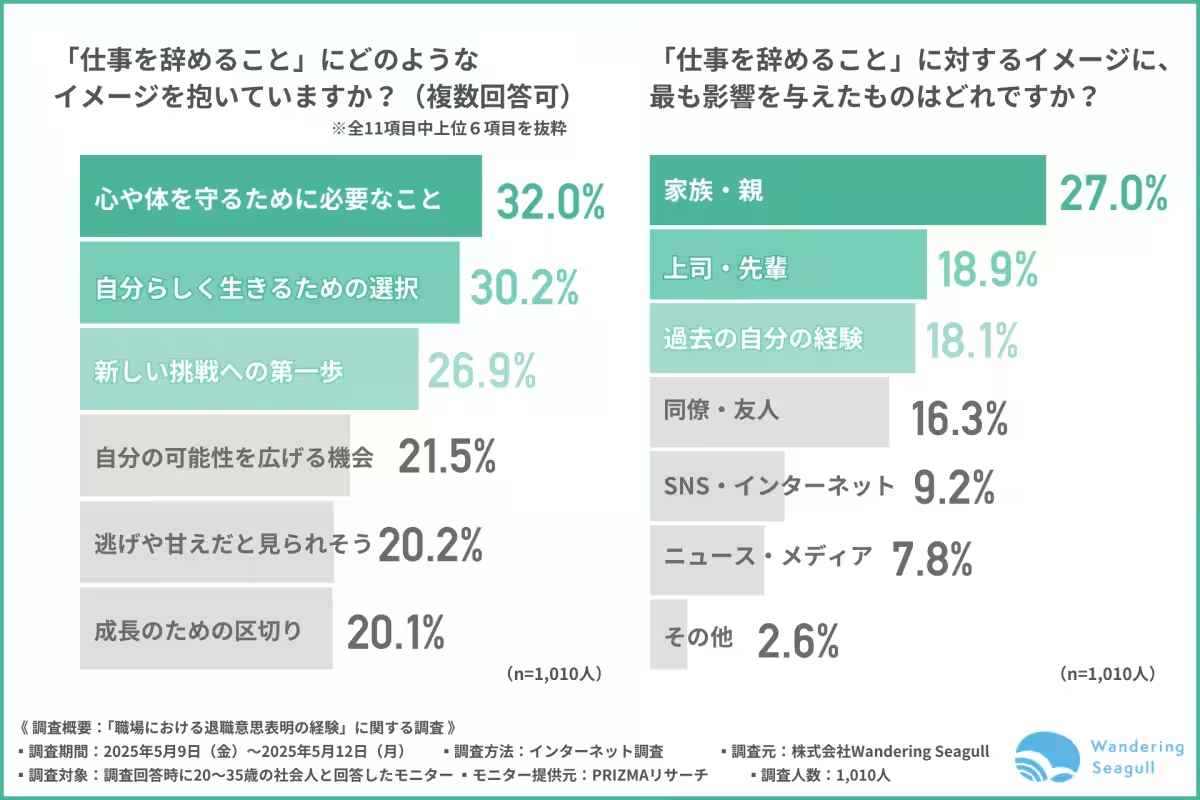
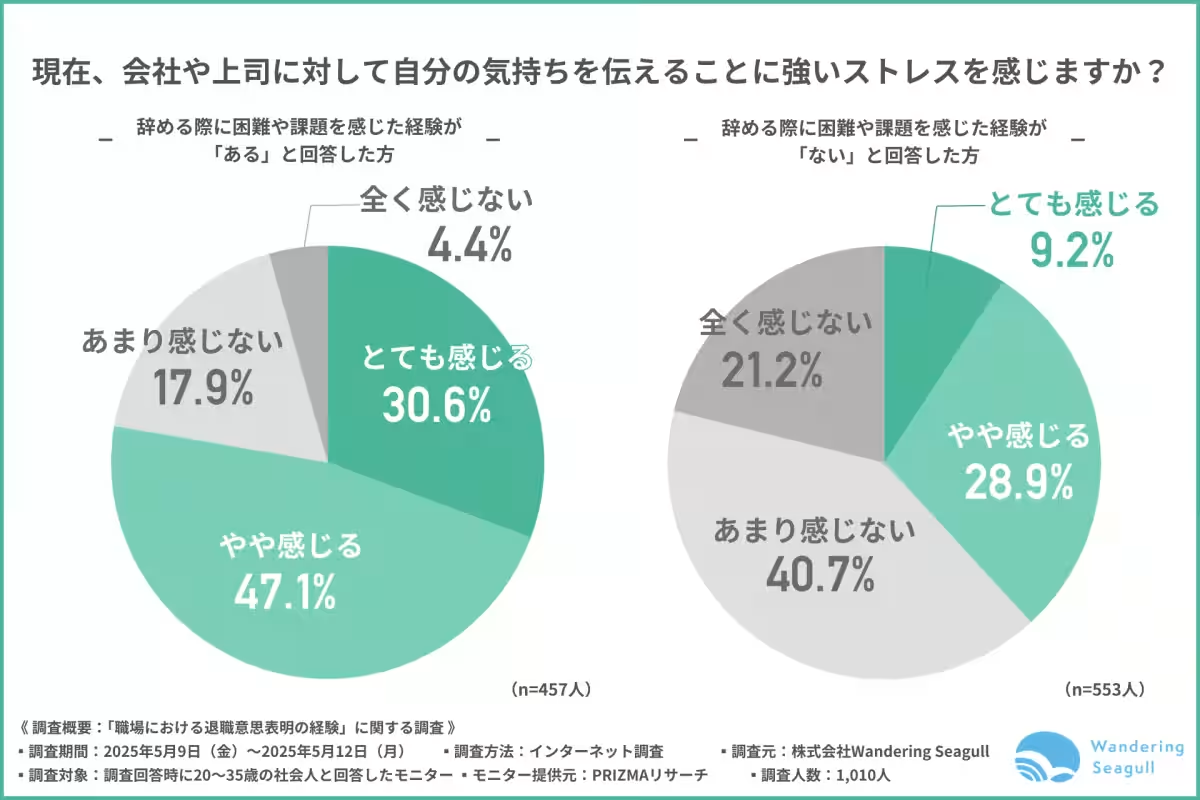
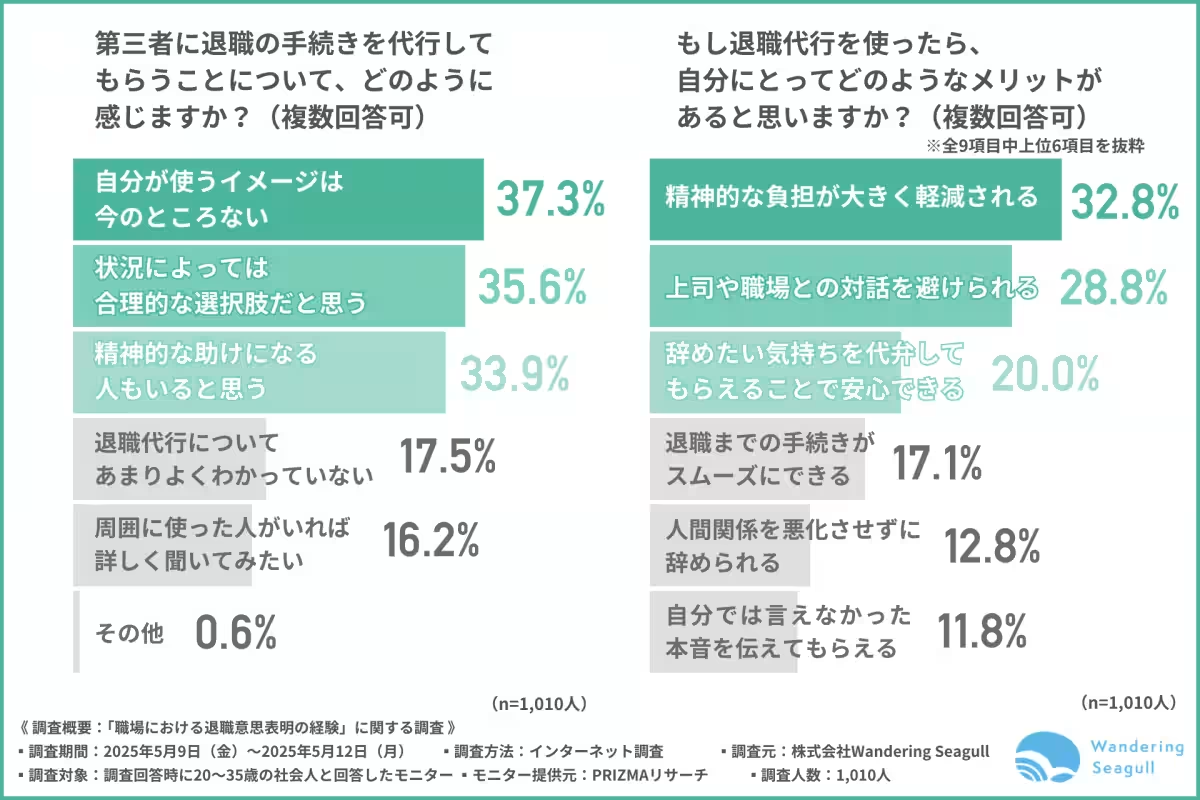

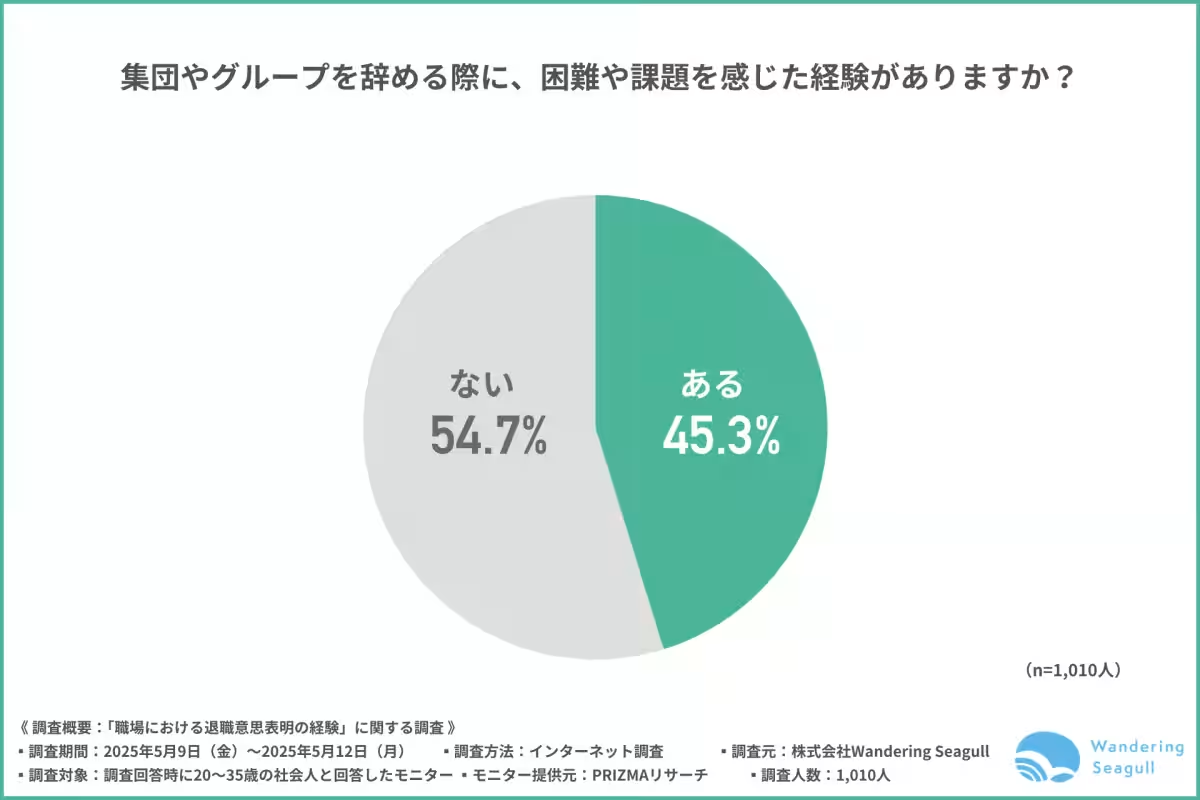
Topics People & Culture)










【About Using Articles】
You can freely use the title and article content by linking to the page where the article is posted.
※ Images cannot be used.
【About Links】
Links are free to use.